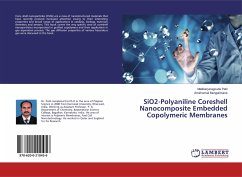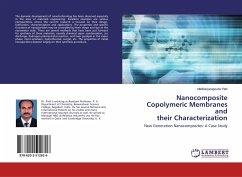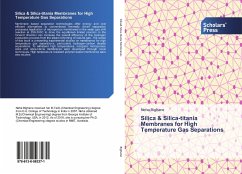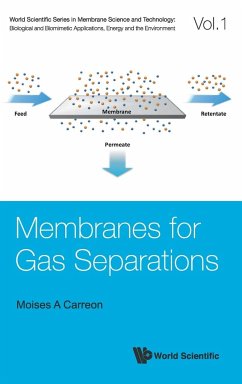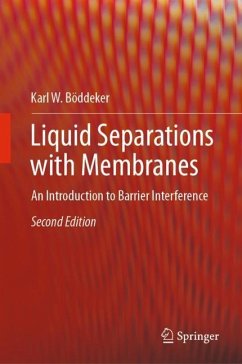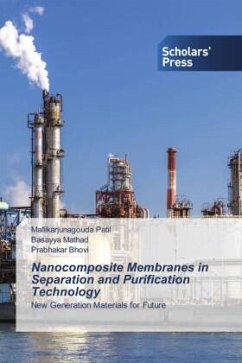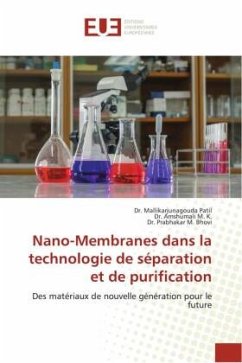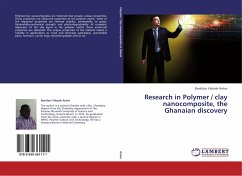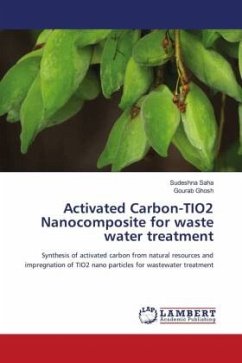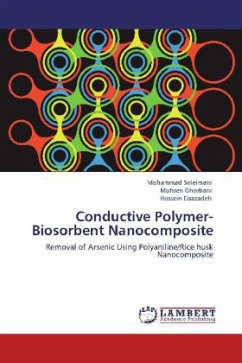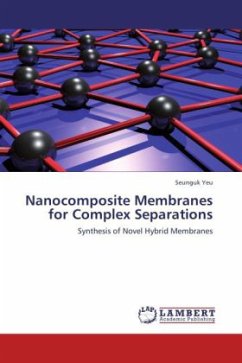
Nanocomposite Membranes for Complex Separations
Synthesis of Novel Hybrid Membranes
Versandkostenfrei!
Versandfertig in 6-10 Tagen
45,99 €
inkl. MwSt.

PAYBACK Punkte
23 °P sammeln!
Over the past few decades there has been great interest in exploring alternatives to conventional separation methods due to their high cost and energy requirements. Membranes offer a potentially attractive alternative as they potentially address both of these points. The overarching theme of this work is to design nanocomposite membranes for processes where existing separation schemes are inadequate. This book focuses on three challenges: 1) designing organic-inorganic hybrid membranes for reverse-selective removal of alkanes from light gases, 2) defect-free inorganic nanocomposite membranes t...
Over the past few decades there has been great interest in exploring alternatives to conventional separation methods due to their high cost and energy requirements. Membranes offer a potentially attractive alternative as they potentially address both of these points. The overarching theme of this work is to design nanocomposite membranes for processes where existing separation schemes are inadequate. This book focuses on three challenges: 1) designing organic-inorganic hybrid membranes for reverse-selective removal of alkanes from light gases, 2) defect-free inorganic nanocomposite membranes that have uniform pores, and 3) organic-inorganic hybrid membranes and photocatalytic membranes for minimizing protein fouling in microfiltration applications. Also, the author presents the basic membrane theories for the readers who are not familiar with membrane.



